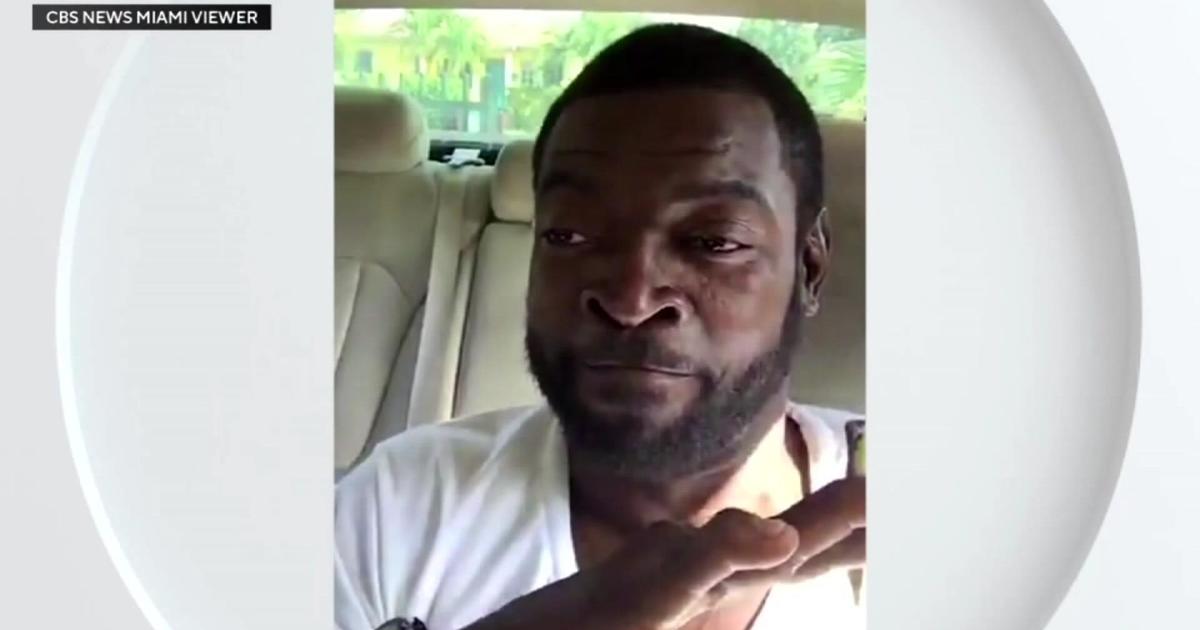Man Convicted Of Killing Dancer To Die Monday
MIAMI (CBSMiami/AP) – A South Florida man convicted of murdering an exotic dancer 25 years ago is scheduled to be put to death on Monday.
Barring a last-minute stay, Marshall Lee Gore, 49, will be executed by lethal injection at 6 p.m.
He was convicted of the March 11, 1988, killing of Robyn Novick, a 30-year-old exotic dancer whose naked body was found in a rural part of Miami-Dade, partly covered by a blue tarpaulin.
Gore was also sentenced to die for the slaying in January 1988 of Susan Roark, whose body was found a few months later in Columbia County in northern Florida.
If it takes place, the execution will be Florida's third in a month.
In addition to the two death sentences, Gore was given seven life sentences plus another 110 years in a case involving the attempted murder of a third woman.
The woman, an exotic dancer, testified during the trial for the Novick killing that she was beaten with a rock; choked, raped and stabbed; and left near the spot where Novick's body was found. The woman was attacked two days after Novick disappeared. Novick had been stabbed and strangled.
It was the attempt against the third woman's life that led to Gore's arrest: He was convicted of stealing the victim's Red Toyota, which the FBI tracked to Paducah, Ky.
When he was taken into custody, he had the woman's bank and credit cards in his jacket pocket, according to court documents. Gore also was convicted of kidnapping the woman's 2-year-old son. He claimed to be the boy's biological father, and left him locked in the pantry of a burned-out, abandoned building in Georgia before heading north.
Gore, who ran an escort service, was questioned about all three crimes shortly after his arrest. When he was shown photos of Novick's body, police said, his eyes filled with tears and he said, "If I did this, I deserve the death penalty."
Gore also took cars and other property belonging to the first two victims, according to trial testimony. He was seen by friends driving Novick's yellow Corvette, bearing the license plate "Robyn," shortly after she went missing. In the Roark case, evidence showed that Gore stole her black Ford Mustang after her killing.
Initially, police said Gore denied knowing any of the women. Later, testifying in his own defense, Gore said all three worked for him at an escort service. He also admitted being with Novick at a bar the night she died, but insisted he didn't kill her. He claimed Novick loaned him the Corvette, which he wound up crashing and abandoning.
As for the surviving victim, Gore claimed she was injured trying to jump out of a moving car.
"Gore also asserted that all of the state witnesses had lied and he refused to explain why he was in the possession of the property of people who were either killed or attacked," the Florida Supreme Court noted in a 2009 opinion denying Gore's appeals.
Among Gore's repeated claims in his appeals is whether he was mentally competent to stand trial. One of his previous lawyers said Gore was "mentally deranged" and not responsible for his actions, but several judges concluded he was using the mental illness claim to manipulate the judicial process. At one hearing, Gore's attorney claimed the presence of television cameras in the courtroom would trigger some kind of mental disturbance.
But in the Columbia County trial for the Roark killing, two psychiatrists said Gore was "controlling and manipulative" and went out of his way to be a difficult client for his own lawyer. In the Novick case, when asked by a judge if he felt competent to proceed, Gore replied, "I'm absolutely competent. I'm absolutely lucid."
A panel of doctors appointed by Gov. Rick Scott also concluded in May that Gore was mentally competent to be executed.
During the Novick trial, Gore made frequent verbal outbursts, laughed out loud and even howled. Although he was convicted and sentenced to death, he won a new trial in 1998 when the state Supreme Court found that the prosecutor had asked Gore improper questions and made inappropriate comments to the jury. At one point with Gore on the stand, the prosecutor got into an argument with him.
"I didn't kill anyone," the prosecutor said when Gore asked if there was a vendetta against him.
"But you're trying to kill me," Gore responded.
"Well, you know what, I am, because somebody who does what you do deserves to die," the prosecutor shot back.
But in 1999 after a second trial in Novick's murder, a new jury reached the same guilty verdict and sentenced Gore to die once again.
(TM and © Copyright 2013 CBS Radio Inc. and its relevant subsidiaries. CBS RADIO and EYE Logo TM and Copyright 2013 CBS Broadcasting Inc. Used under license. All Rights Reserved. This material may not be published, broadcast, rewritten, or redistributed. The Associated Press contributed to this report.)



